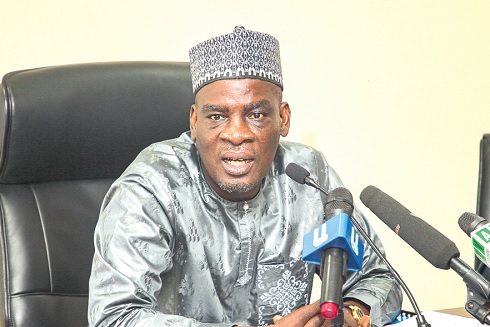
Education Ministry, private schools sign MoU to formalise inclusion in free SHS
The Ministry of Education has signed a memorandum of understanding (MoU) with the Ghana National Council of Private Schools (GNACOPS) and the Conference of Heads and Proprietors of Private Senior High Schools (CHOPSS) to formalise the inclusion of private second-cycle schools in the free senior high school programme.
The move, among other things, is to make use of excess capacity in the private institutions to reduce congestion in public second-cycle schools across the country.
Double track
It is also in fulfilment of a campaign pledge by President John Mahama during the 2024 electioneering period to extend the free SHS to private schools and forms part of the government’s efforts to eliminate the double-track system in public schools.
The Minister of Education, Haruna Iddrisu, signed for the ministry while the Executive Director of the Ghana National Council of Private Schools (GNACOPS), Enoch Kwasi Gyetuah, initialled for the organisation.
The President of CHOPSS, I.K. Mensah, signed for his organisation.
Seventy private schools benefiting from the government’s initiative have declared over 44,000 vacancies.
The government has already placed at least 25,000 qualified Basic Education Certificate Examination (BECE) candidates under the Computerised Schools Selection and Placement System (CSSPS) into those institutions.
Speaking at the event, Mr Iddrisu said the president had an understanding that the implementation of the free SHS initiative was bedevilled with many problems that affected the delivery of quality education at the second cycle level.
Access
The previous administration, he said, in its quest to expand access to free SHS, redefined Free Compulsory Universal Basic Education to include free SHS.
“So, in Ghana, today, the constitution guarantees equal educational opportunities for all Ghanaians”.
He said the government was happy to partner with the private institutions to attempt to resolve the crisis of a problem of placement and the crisis of the problem of double track, which undoubtedly was affecting the delivery of quality education.
Mr Iddrisu said the 25,000 students who had been placed in private SHSs would have been without schools, and that could have defined a terminal end to the career of many young people desirous of having to go to senior high school and progress into tertiary level.
“We are assured by your quality that some of them, if not many of them, will make it to the tertiary level.
The government remains deeply committed to the terms and conditions of this agreement.
So, the other aspect is that today, apart from honouring our campaign pledge, we are bringing some excitement to some parents and some students,” he said.
Stipend
The minister said the government was committed to providing a stipend of at least GHS250 to support the transition of that category of students moving into private schools.
NASIA
He said along the line, he had to request the National Schools Inspection Authority (NASIA) to do an assessment of the readiness of private schools by way of quality standards and that some of the institutions would have to work to improve that, while others were more than ready to get the process running.
For his part, Mr Gyetuah said GNACOPS was ready to partner with the government to ensure that whatever they had agreed within the MoU would be followed to protect the integrity of education and delivery.
Mr Mensah stressed the need for compliance under the terms of the MoU.
